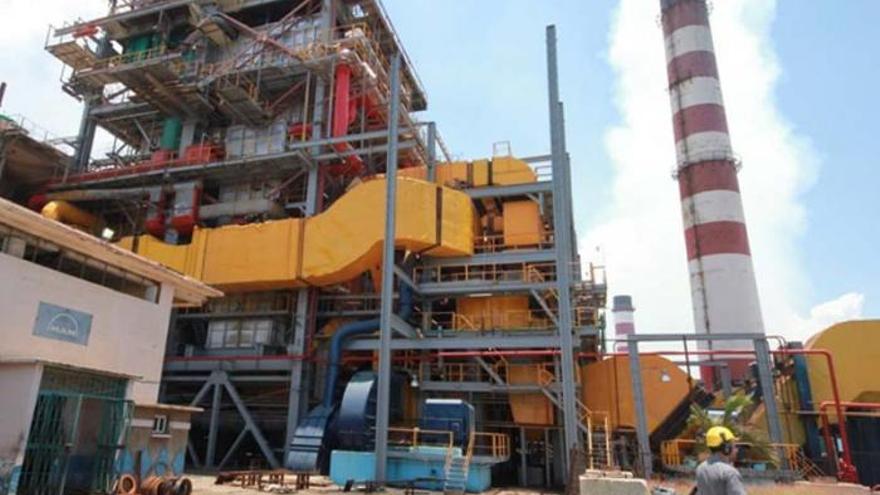
![]() 14ymedio, Havana, 13 September 2022 — On Sunday, 83% of homes in Cuba were affected by power outages, which lasted about seven hours on average, according to the reports from Cuba’s Electric Union, which were shared on national television on Monday and a very similar situation is expected today.
14ymedio, Havana, 13 September 2022 — On Sunday, 83% of homes in Cuba were affected by power outages, which lasted about seven hours on average, according to the reports from Cuba’s Electric Union, which were shared on national television on Monday and a very similar situation is expected today.
According to data published by UNE on its Facebook page — where comments on certain posts are limited — power generations issues were experienced yesterday, with a deficit of 764 MW at night and 850 during the day; tonight a 751 MW deficit is expected and 821 during peak times. That is, if the situation does not deteriorate, because units 6 and 7 of the thermoelectric plant in Mariel, units 4 and 6 in Nuevitas; unit 2 in Felton, unit 4 in Renté, and the one in Otto Parellada are still out of service.
In this context, the state-run press has published an opinion piece by Lázaro Oramas, a member of Cubainformación who lives in Spain, titled Cuba: Electricity Crisis? Or the Effects of War? during which he states, among other things, that despite inflation, “in Cuba electricity prices have not increased” and he compares this to the situation in Puerto Rico, where “with privatized electricity, there are also constant blackouts” and the costs have increased by 60%.
“If in Cuba groups of people protest, desperately, against the power outages, it shows that people ’are in disaggrement with the regime’ and they go ‘to the streets to demand freedom’. However if, in Puerto Rico, the police shoots tear gas at point-blank range at those who protest against the blackouts, or if they hit journalists, why don’t we read the same terms, such as ‘regime’, ‘repression’, or ‘freedom’?” writes Oramas.
The Puerto Rican electric grid was turned over to a private company in 2020. The system’s instability was evident since 2017 when Hurricane María caused significant damages. Furthermore, the debt had grown at a dizzying speed, which is why the state negotiated with a company to manage and modernize the infrastructure. In April of 2022, a major failure, the cause of which is still undetermined, left half the country without power. The discontent generated by the price increases clashed with the power outage and resulted in the protests which, finally, forced a breach in the contract between the government and Luma Energy.
The situation is far from what happens on the Island, where the power outages and scheduled blackouts are ongoing and are a headache for millions of Cubans each summer, although in 2022 they have become unbearable. The cause, according to Oramas is obvious, “and objective: the technological precariousness of the power plants in a country without hard currency and under a U.S. blockade.”
Several Cuban economists have stated that the investment needed in the thermoelectric plants or in renewable energy would be possible if they would halt hotel development, especially at a time when tourism is declining. But the authorities continue to solely blame the foreigners.
At the end of August, Miguel Díaz-Canel, during a visit to the Fenton power plant where he showed up backed by Raúl Castro, stated that authorities would do whatever was necessary to repair the thermoelectric plant. “It’s easy, taking money planned for hotels, which have occupancy rates of less than 50%, might be a good idea,” stated economist Elías Amor at the time.
That day, the ruler stated that by December, the blackouts would come to an end, but less than 24 hours later, the Antonio Guiteras thermoelectric plant in Matanzas, the country’s largest, was out of service. After several very difficult days, during which the power generation deficit was greater than 50%, they managed to stabilize some of the units at different plants throughout the country, which led authorities to be optimistic.
A few days ago, the daily Escambray solicited the opinions of its readers on whether the power outages should be reduced since an improvement was in sight, but things have deteriorated again.
“In Colombia, an oil-producing country with large foreign investments, there are a half million homes without electricity,” Oramas article continues. “In contrast, Cuba’s electrification, according to World Bank data, is close to 100%. Have you read that?” he says. What he does not state is that it rarely functions.
Translated by: Silvia Suárez
____________
COLLABORATE WITH OUR WORK: The 14ymedio team is committed to practicing serious journalism that reflects Cuba’s reality in all its depth. Thank you for joining us on this long journey. We invite you to continue supporting us by becoming a member of 14ymedio now. Together we can continue transforming journalism in Cuba.
